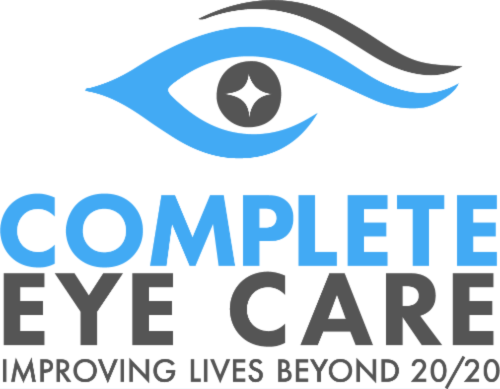Dehydration can cause fatigue, dizziness, and headaches, but did you know it can also affect your eyes and vision? When you’re dehydrated, your eyes begin to dry out and can feel increasingly uncomfortable. You may experience dry, red, itchy, or gritty-feeling eyes. Understanding how these issues happen can help you prevent them in the first place.
Why are Tears Important?
Tears aren’t just for crying. In fact, that’s not even their primary use. Tears are important for keeping your eyes moisturized and comfortable, as well as helping wash away debris like dust, and preventing bacteria build-up which can cause infections.
Healthy tears are made up of three distinct layers: an outer oily layer, a middle watery layer, and an inner layer that contains mucus.
Another lesser-known function of your tears is helping light enter your eye easily. This is why chronically dry eyes can cause blurred vision. In very severe cases, dry eyes can even cause ulcers on your cornea, the clear layer at the front of your eye that helps focus incoming light.
What Happens if I Get Dehydrated?
At some point in most of our lives, we’re likely to experience symptoms of dry eyes. This becomes even more likely if we allow ourselves to become dehydrated often. Dry eye symptoms can be constant, or they can come and go. If you have dry eye, you may notice:
- A burning or stinging feeling in the eyes
- Discomfort when wearing contact lenses
- Blurred or double vision
- Scratchy- or gritty-feeling eyes
Interestingly, some cases of dry eyes can actually cause your eyes to become watery. This happens because your eyes are trying to compensate for the dry, scratchy feeling by producing more tears. However, these excess tears don’t have the right elements to properly hydrate your eyes, so they, unfortunately, don’t help you feel any better. You may notice your eyes watering while watching TV, using the computer or tablet, or reading.
Why Do I Have Dry Eye?
There are many reasons why you may be experiencing dry eye symptoms. Age is a common factor in dry eye syndrome. As you get older, you may produce fewer tears, or your tears may lack the right balance of water, oil and mucus to allow tears to stick to, spread out over, and properly hydrate your eyes. Diseases like Sjogren’s syndrome or arthritis, and side effects from medications, such as beta blockers and anti-anxiety meds, can also cause you to have issues with tear production.
Contact lenses can also be problematic for people who have problems with dry eye syndrome, particularly if you overwear them. In the case of soft contacts, this may happen because they absorb moisture from your eye to remain flexible. If you’re not producing enough tears, or your tears are evaporating too quickly, this can become a problem.
Extended use of digital screens, such as tablets, smartphones, and computers can also make dry eye symptoms worse. Studies have shown that this happens because you blink significantly less while using these screens. Your eyes are rehydrated with each blink, so less blinking means less hydration.
Other leading factors for dry eye syndrome include environment and gender. If you live in particularly dry or windy places, your eyes are likely to dry out more easily. Dry eye syndrome is also more prevalent in women. This is largely due to the fact that hormonal changes caused by pregnancy, menopause, or birth control can affect the eyes’ ability to produce healthy tears.
How Do Eye Care Professionals Treat Dry Eye?
When patients come into our Belmont eye clinic complaining of dry eyes, we first need to get to the bottom of what’s causing the symptoms. Our eye care team is trained to employ a number of techniques and technologies to determine what the underlying problem is and how to treat it.
One of the most common treatments we start our patients out with is artificial tears. These prescription drops imitate healthy tears and help keep your eyes naturally hydrated. If you’re not producing enough tears, we may also prescribe you special eye drops that increase tear production.
In more extreme cases of dry eye syndrome, we may recommend the use of punctual plugs. This minimally invasive procedure involves putting small plugs in the area where your tears normally flow out from your eyes. This is meant to slow down tear outflow, maximizing the amount of time that the tears sit on the eye. These plugs can be temporary or permanent, depending on your needs.
Tips to Keep Your Eyes Hydrated
Want more tips on how to keep your eyes well-hydrated and comfortable? Take a look below:
- Turn down the hot air. Rooms that are too hot, or air blowing directly onto your face can dry out your eyes more quickly.
- Increase the amount of moisture in the air at home and work by using a humidifier.
- If you smoke, quit. Chemicals in smoke cause your eyes to dry out. Your smoke does the same to everyone around you as well.
- Sunglasses are a great way to block dust and other allergens from getting in your eyes. They also help block the sun from drying out your eyes.
- Use artificial tears without preservatives to better hydrate and lubricate your eyes.
Want to learn more about how to keep your eyes healthy and avoid dry eye symptoms? Come visit our Belmont eye clinic, or give us a call at 704-825-9002 today.
